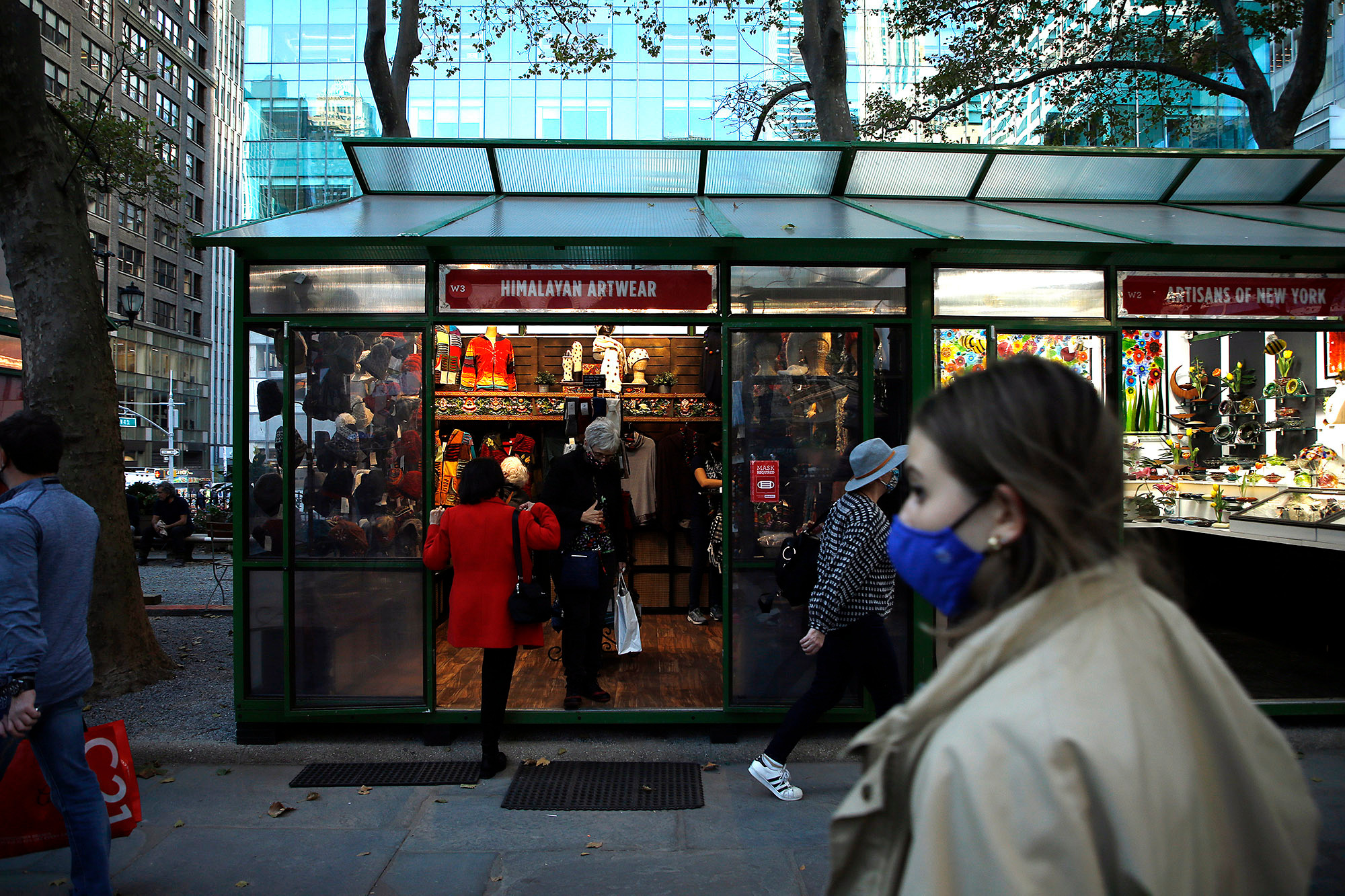More On: black friday
Best Kohl's Black Friday Deals 2020 - E! Online
Best Madewell Black Friday Deals 2020 - E! Online
Nordstrom's Black Friday Sale 2020 Is Already Here! - E! Online
Best Black Friday Fashion Deals 2020 - E! Online
Best Black Friday Beauty Deals 2020 - E! Online
The coronavirus won’t shrink Americans’ holiday budgets very much — but it could change how people shop for gifts, a new survey says. US consumers expect to spend an average of $1,248 on
The coronavirus won’t shrink Americans’ holiday budgets very much — but it could change how people shop for gifts, a new survey says.
US consumers expect to spend an average of $1,248 on holiday gifts, travel and entertainment during the last two months of the year, down just about 3 percent from last year’s levels, according to professional-services firm PwC’s annual holiday forecast.
Spending on presents is expected to stay roughly flat at $719 while outlays for travel and entertainment will drop about 4 percent and 13 percent, respectively, given that the virus has made holiday trips and family gatherings risky, the report released Tuesday shows.
“Consumers are still shopping for these gifts that are for friends and family, and for themselves,” Alison Stone, senior manager for consumer markets at PwC, told The Post. “… The way that people are celebrating the holidays just feels different this year.”
While this is the first year since 2014 that PwC has forecast a drop in holiday spending, the outlook has improved considerably since August, when a separate survey showed consumers planned to spend about 12 percent less.
But shoppers will have their eyes on the virus as a record-setting surge in infections and hospitalizations grips the nation, Stone said. Some 55 percent of consumers said COVID-19 is their top concern about holiday shopping, and nearly nine in 10 say pandemic safety measures are important to them when they shop in stores, PwC’s survey found.
That appears to be spurring a shift toward online shopping for Black Friday, when about a third of Americans expect to buy the bulk of their holiday gifts, according to PwC.

The share of consumers who plan to do all of their Black Friday shopping digitally jumped to 37 percent from 30 percent last year, while just 18 percent expect to shop exclusively in stores, down from 22 percent last year, the report shows.
“There is some anticipation of Black Friday people lining up outside of stores, stores are packed, so some consumers are wary about how crowded stores might be,” Stone told The Post.
Moreover, a growing number of consumers have gotten a jump on the shopping season as major retailers such as Amazon and Target started offering deals as early as October.
More than 40 percent of holiday shoppers said they started earlier than normal this year and 59 percent had begun making purchases by early November, up from 49 percent a decade ago, according to a National Retail Federation survey released this week.
“Consumers have welcomed the longer shopping season, where many retailers have chosen to offer deals before and leading up to the traditional Thanksgiving and Black Friday doorbusters,” Phil Rist of Prosper Insights & Analytics, which conducted the NRF survey, said in a statement.






















